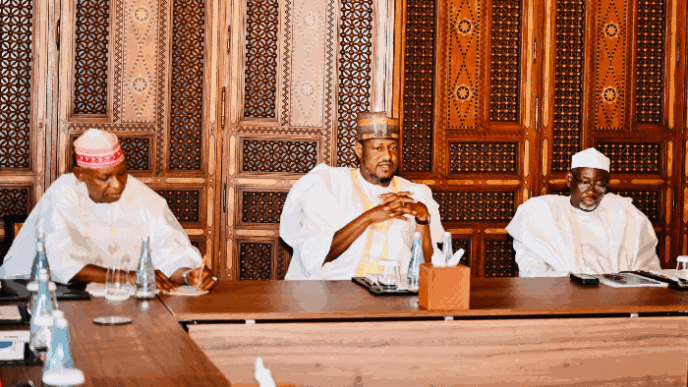BY GRACE ABAYOMI
We are living in uncertain times. Throughout Nigeria and even around the world, households and firms are wrestling with inflation (though abating), the unpredictability of currency movements and the rather unsettling prospect of jobs that feel less secure than they did decades ago. In Nigeria especially, these pressures are amplified by the structural challenges that affect daily life, from rising costs, an undercurrent of scepticism towards financial institutions and ever shrinking disposable income.
And it is in this exact type of climate that questions of trust are relevant, and above all, existential. How can a financial services provider convince people to place their confidence, and futures, into its care when everything else feels fragile? There’s not one straightforward answer and realistically, there shouldn’t be. Trust is earned. It is not automatic. It can be lost in an instant and earning it is often painfully slow.
Why Trust Matters More Than Ever
Advertisement
At their core, financial services firms are in the business of promises. Promises are made to protect families in the unfortunate event of misfortune, to preserve the value of savings through the storms of economic life, to deliver security in retirement when income from work is over and more. The technical products, insurance contracts, investment portfolios and pension schemes are the mechanisms used to fulfil these promises. But they are not the substance of the relationship. What really matters is the confidence that those promises will be honoured, when called upon.
It is arguably true that products and pricing can win market share, but those wins are only temporary. Without the deeper foundation of trust, adoption will remain shallow. We have seen this in societies where financial penetration is low. Initial adoption might seem exciting as people explore products but do not fully commit to any.
There is growing distrust which drives people’s preference to keep their wealth in physical assets or informal systems because they doubt the institutions that are charged with safeguarding their futures. Thus, reinforcing the belief that trust is not just some soft value, it is the foundation for modern financial systems.
Advertisement
The Issue of Trust Deficit
The Nigerian financial landscape is an illustration of this challenge. While Nigeria is Africa’s largest economy by population, insurance penetration is among the lowest globally. Pensions contribution is also trailing other jurisdictions and yet to capture the full confidence of citizens. There is a general sense of distrust and suspicion towards long-term savings vehicles. The Nigeria story justifies the fear of many, arising from the economic instability, inflationary pressures and in few cases, the unfortunate history of financial mismanagement across parts of the value chain.
As a consequence, there is a deficit in trust which limits Nigeria’s capacity for broad-based financial inclusion. When people are hesitant about entrusting their savings to formal institutions, the economy misses out on deep pools of capital that long-term savings could create. The opportunities are twofold. Pension funds, insurance premiums and managed assets are not only safeguards for people and households. They are also an important bedrock of national development that will provide much needed capital for infrastructure, housing and enterprise. When trust is absent, households are constrained, and the broader economy misses out on growth and development. This is where institutions with a tested and trusted record matter.
Institutions Changing the Trust Narrative
Advertisement
Despite these challenges, a quiet transformation has been unfolding within Nigeria’s financial sector. Several institutions are deliberately working to change the narrative by strengthening governance, improving transparency and consolidating operations to serve customers better.
In October 2024, for instance, Access Pensions and ARM Pension Managers completed a merger to form Access ARM Pensions Limited, creating one of the largest pension fund administrators in the country with assets exceeding ₦3.5 trillion and more than 2.8 million retirement savers. The merger was more than a business move, it demonstrated a commitment to scale, stability and professionalism in a sector long defined by fragmentation.
Going back further, in 2022, Guaranty Trust Holding Company (GTCO) made a deliberate move into the pensions’ space through its full acquisition of Investment One Pension Managers. This wasn’t merely portfolio expansion; it reflected a broader signal of intent by a systemically important financial group to strengthen governance within long-term savings. Major, well-capitalised institutions are investing in long-term savings infrastructure, aligning with regulators, and setting higher standards for accountability. Together, these developments signal that Nigeria’s financial system is gradually re-earning public confidence.
With a simple philosophy: financial strength and transparent governance are non-negotiables. They are the invisible and non-glamorous disciplines that underpin every promise made. It is because of this discipline that their RSA Holders have continued to rely on them, generation after generation.
Advertisement
Leadway’s recent acquisition of Pensions Alliance Limited (PAL Pensions) fits within the broader wave of consolidation reshaping Nigeria’s financial sector. Announced in September 2025, the transaction sees Leadway Holdings take on ownership of PAL. With PAL Pensions assets exceeding ₦1 trillion and a contributor base of roughly 700,000 Retirement Savings Accounts (RSAs), PAL adds significant scale to Leadway’s pensions’ portfolio. While such moves can initially prompt questions about possible disruptions, the available evidence from successful acquisition & mergers by Access Pensions and GTCO points instead to continuity, stronger governance, improved customer experience, and a sector steadily building the capacity and trust needed for long-term growth.
Combining PAL Pensions positive track record of professionalism and service with Leadway’s governance infrastructure and long record of stability, the integration strengthens the ability to serve contributors without interruption. Pension assets remain secure, benefits remain intact, and the service platform can only be enhanced, not diminished.
Advertisement
That said, words alone cannot reassure Nigerians who remain sceptical of financial institutions. What will matter most is evidence: how accounts are managed, how promptly benefits are paid, and how customer complaints are handled. The true test of the acquisition lies in whether it improves overall customer experience in practice rather than complicating it. Continuity and confidence must be proven not in press statements but in day-to-day interactions with contributors.
The acquisition connects PAL RSA Holders to Leadway’s diverse ecosystem spanning insurance, health, investment, and wealth management. It signals a shift toward integrated financial services, echoing the one-stop models of brands like Access and GTCO.
Advertisement
Trust as a Growth Strategy
There is a deeper point here: trust is not only an ethical imperative, but also a strategy for growth. Confidence breeds loyalty, loyalty fosters inclusion, and inclusion expands the pool of savers and investors who can contribute to national development.
Advertisement
This is why leading financial institutions continue to invest heavily in people, systems and digital platforms. The goal is not technology, but the ability to upscale with technology and deliver reliability. When an RSA Holder can view their pension statement online without difficulty, or when a contributor receives prompt responses to queries, trust deepens. Over time, that trust cascades across generations, becoming the norm as parents who relied on an institution encourage and entrust their children to rely on the same institution.
Over time, loyalty becomes the most valuable asset any firm can hold. Capital can always be raised and products designed, but once customer confidence is lost, it is difficult to regain.
Closing Reflections
Nigeria is entering a period where uncertainty is abating as we are entering a phase of stability. Even as domestic challenges are enduring, the global economy is unsettled. In this environment, the most valuable currency any financial institution can offer beyond attractive yield and novel products is the assurance that promises will be kept. In other words: trust.
Ultimately, Nigerians deserve financial partners they can rely on – families saving for retirement, entrepreneurs seeking protection, and workers building modest nest eggs. These groups need institutions that will stand firm even when the world feels uncertain. Trust, therefore, is not only a safeguard for individuals but also a foundation for national financial resilience.
Views expressed by contributors are strictly personal and not of TheCable.













